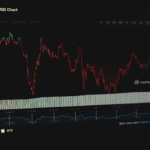
Off-exchange trading, or over-the-counter (OTC) trading, plays a crucial role in the digital asset market, offering private transactions that occur outside public exchanges. This method of trading is often preferred by institutional investors, high-net-worth individuals, and large traders seeking to execute significant buy or sell orders without causing market disruptions.
However, the OTC market has a set of vulnerabilities that both new and seasoned investors should understand. While it offers advantages like liquidity and privacy, it also comes with significant risks.
What is Off-Exchange Trading?
OTC trading in digital assets is a method where trades are directly negotiated between buyers and sellers, bypassing centralized exchanges such as Binance, Coinbase, or Kraken.
Unlike traditional exchange trading, where transactions are visible and conducted through an intermediary, OTC transactions take place on a peer-to-peer basis, with a trusted broker facilitating the deal.
For large transactions, OTC trading is often preferred because it avoids slippage—where the execution price deviates due to the size of the order disrupting the market.
Additionally, it allows for more privacy, as the transaction is not visible to the public, helping maintain price stability and confidentiality for high-profile investors.
Vulnerabilities of the OTC Market
Despite its benefits, OTC trading carries several risks, primarily stemming from its less-regulated, private nature. The lack of transparency and oversight makes the market prone to manipulation, fraud, and security breaches.
- Counterparty Risk
OTC trading inherently involves trust between the parties involved. This counterparty risk refers to the possibility that one side of the transaction may not fulfil their part of the deal. In regulated exchanges, the intermediaries and the platform itself provide mechanisms to protect against such failures.
In the OTC market, however, participants rely on brokers or dealers to ensure that both parties adhere to the agreement. The absence of a third-party guarantee increases the risk of defaults, leaving one party exposed to financial loss.
- Price Manipulation
OTC markets are less transparent than public exchanges, making them susceptible to price manipulation. Since large trades are negotiated privately, unscrupulous traders or brokers may use their influence to artificially inflate or deflate prices.
Without public order books to track transactions, it’s difficult to determine whether a price is reflective of true market conditions or the result of a strategic move by a market participant.
- Lack of Regulation and Oversight
The OTC market for digital assets is largely unregulated compared to traditional financial markets. In regulated markets, investors have the benefit of regulatory bodies that enforce rules and oversee market activities.
In the OTC space, however, trades can occur without proper disclosure, and investors may not be fully aware of the financial health or legitimacy of their counterparty. The absence of regulation also means that there is no clear recourse for disputes, leaving participants vulnerable to bad actors.
- Cybersecurity Risks
Given the private nature of OTC transactions, cybersecurityis a key concern. Exchanges typically invest heavily in cybersecurity infrastructure to protect user data and assets, but many OTC brokers operate on a smaller scale and may not implement the same level of security.
As a result, OTC traders are more vulnerable to hacking and fraud, with the potential for significant losses in case of a security breach.
For those seeking to explore OTC trading or other digital asset investment opportunities, Kenson Investments offers educational resources and insights. Understanding the risks and rewards of off-exchange trading is essential for any investor looking to navigate the complexities of the digital asset market.
Disclaimer: The information provided on this page is for educational and informational purposes only and should not be construed as financial advice. Crypto currency assets involve inherent risks, and past performance is not indicative of future results. Always conduct thorough research and consult with a qualified financial advisor before making investment decisions.
“The crypto currency and digital asset space is an emerging asset class that has not yet been regulated by the SEC and US Federal Government. None of the information provided by Kenson LLC should be considered as financial investment advice. Please consult your Registered Financial Advisor for guidance. Kenson LLC does not offer any products regulated by the SEC including, equities, registered securities, ETFs, stocks, bonds, or equivalents”














